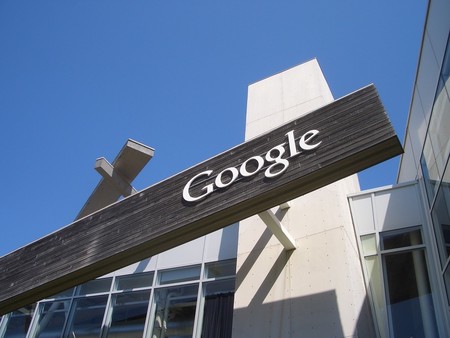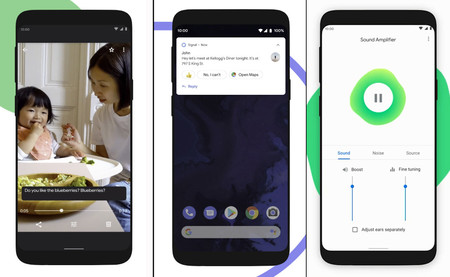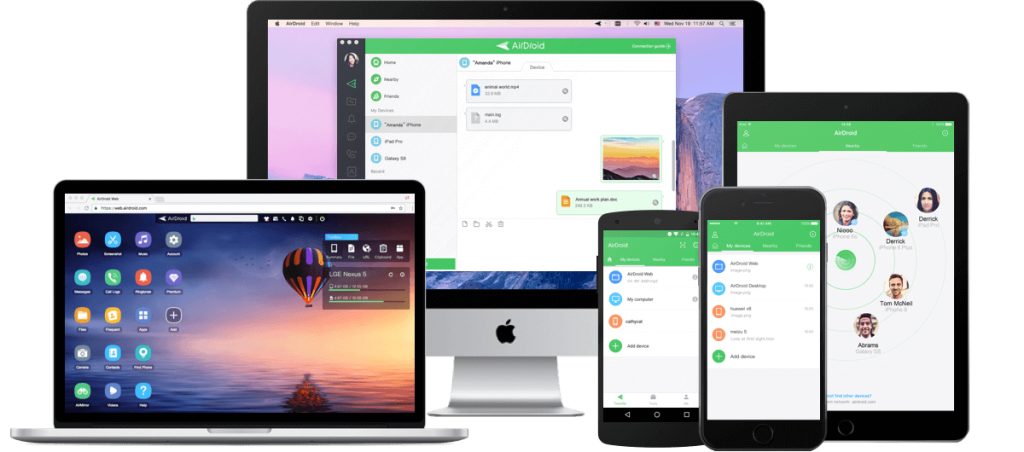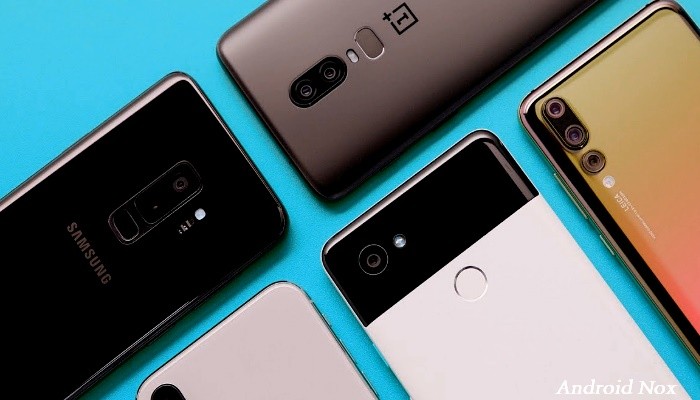In November 2007 Google announced that it was launching a mobile operating system called Android. Its origin was in the purchase he had made a year before of a small startup in California, but what he announced in 2007 was quite large. Android would be an open source operating system and an alliance was formed, the Open Handset Alliance, where manufacturers such as Samsung and HTC would be.
It took a year for the first device with Androd to come out, the HTC G1 (also called Dream). Since then Android has evolved a lot and Google has clearly pivoted and, through this lever, towards mobile. How has the business that Android brings to Google evolved in this decade?
From mobiles for fans to being omnipresent
The growth of Android was unstoppable since its inception, but at first it was competing against giants like Nokia that, despite having an overwhelming market share, adapted poorly and late to the new paradigm of smartphones.
In just a few years Google has managed to impose its mobile phone solution
As of 2010, it could be said that Android was not only a niche operating system, for technology fans. The growth in that year was brutal and in the last quarter of the year it could be said that the market share was equal to that of Nokia’s Symbian. As of 2011 the dominance of Android has been uninterrupted.
Perhaps one of the reasons for that spectacular 2010 is that, despite the fact that Google was the software provider for the Open Handset Alliance, decided to release a terminal, the Nexus One, which would be the reference for developers and fans of the operating system.
 HTC Dream, the first mobile with Android
HTC Dream, the first mobile with Android Thus Google marked a path of where mobile phones had to go. The Nexus were never best sellers but they were a reference of where the new functionalities of the operating system were going to go and how to design applications.
Since 2010 the domain of Android worldwide has been overwhelming. Growth continued until 2014, and since then it has remained around 80%.

In just a few years Google has managed to impose its mobile phone solution and that its services are the pocket of the majority of the planet’s population. And this has been great business.
How Google makes money with Android
The source of Google’s revenue hasn’t really changed much since the company’s inception. Advertising was the foundation of his business and still is. The only change (which is also fundamental) is that The Internet has transitioned from a desktop to a mobile experience. In the transition, Google has managed to keep its advertising services the most used.
Google makes money with Android by advertising, selling applications, selling services and charging licenses
So, the first way Google makes money on mobile is with advertising. This can come from your search engine or by the integration of your advertising services in third-party or own applications (such as YouTube or Google Maps). That is the main source of income for Google and also on Android.

Another source of income for Google on Android is through the sale of applications on the Google Play Store. Google enters 30% of everything paid through the storeAlthough for this it must bear the costs of distributing the applications.
Google also offers payment services within Android, for example Play Music, Play Books or Play Movies, although its income in this area is minority.
A final source of income is by charging manufacturers for licenses to use Google services within Android. Until 2018, these licenses did not exist, but due to restrictions in the EU, these licenses are charged within this territory (which can reach 30 euros per terminal sold).
How much is the Android turnover estimated to be
It is difficult to know how much Google makes from Android since Google does not break down figures. The only figure that is known is the one that Oracle gave in the lawsuit it had with the Mountain View company. There, in 2016, it was said that Google had entered thanks to Android and since it was launched in 2008 31,000 million dollars with 22,000 million profit. The figure was neither confirmed nor denied by Google, so we cannot know if it is correct.
How much of the income that Google has is thanks to the existence of Android?
What we do know is that Google invoices about 170,000 million a year in 2020, 70% comes from the sale of advertising and the gross margins are very high, as well as that the gross profit is around 90,000 million dollars. And according to Statcounter, since 2016 there is already more mobile than fixed traffic on the Internet.

How much of this income that Google has are thanks to the fact that Android exists, its search engine is the one that comes by default and YouTube and other applications that generate income are pre-installed on the terminals? It is very difficult to know. Intuitively it may seem like a lot but it is also true that Facebook lives off mobile advertising and does not dominate operating systems (despite its crude attempts). In the end, users tend to use good services.
But it is very interesting to know that Google pays Apple from 8,000 to 12,0000 million a year for being the default search engine in Safari on iOs. How much would you spend if Android wasn’t the dominant operating system?
Therefore, those who said a decade ago that Android was a side project, which would never make it profitable, they were wrong. Today all the companies that are launched on the Internet are mobile first and Google is able to monetize its operating system dominance. This decade has seen an evolution of the Internet from desktop to mobile and Google, thanks to Android, has managed to dominate the wave of change.








